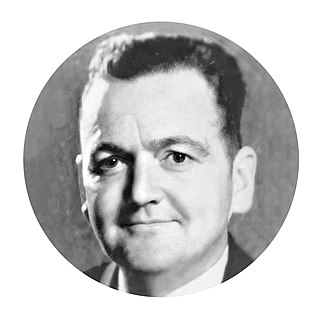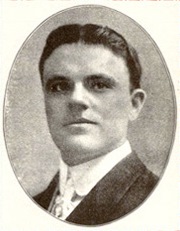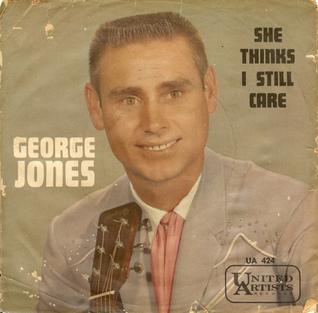"Take Me Out to the Ball Game" is a 1908 Tin Pan Alley song by Jack Norworth and Albert Von Tilzer which has become the unofficial anthem of North American baseball, although neither of its authors had attended a game before writing the song. The song's chorus is traditionally sung as part of the seventh-inning stretch of a baseball game. Fans are generally encouraged to sing along, and at some ballparks, the words "home team" are replaced with the team name.

Morna Anne Murray is a Canadian singer of pop, country, and adult contemporary music, who has sold over 55 million album copies worldwide during her over 40-year career. Murray has won four Grammys including the Grammy Award for Best Female Pop Vocal Performance in 1979.

Howard Johnson was a song lyricist. He was inducted into the Songwriters Hall of Fame in 1970.

Carl Dean Wilson was an American musician who co-founded the Beach Boys. He was their lead guitarist, the youngest sibling of bandmates Brian and Dennis, and the group's de facto leader in the early to mid-1970s. He was also the band's musical director on stage from 1965 until his death.

William Thomas Murray was one of the most popular singers in the United States in the early 20th century. While he received star billing in Vaudeville, he was best known for his prolific work in the recording studio, making records for almost every record label of the era. Murray was the best-selling recording artist of the first quarter of the 20th century, selling over 300 million records during the phonograph era.

"It's a Long Way to Tipperary" is an English music hall song first performed in 1912 by Jack Judge, and written by Judge and Harry Williams, though authorship of the song has long been disputed.

"The Yankee Doodle Boy", also known as "(I'm a) Yankee Doodle Dandy" is a patriotic song from the Broadway musical Little Johnny Jones, written by George M. Cohan. The play opened at the Liberty Theater on November 7, 1904. The play concerns the trials and tribulations of a fictional American jockey, Johnny Jones, who rides a horse named Yankee Doodle in the English Derby. Cohan incorporates snippets of several popular traditional American songs into his lyrics of this song, as he often did with his songs. The song was performed by James Cagney in the 1942 film Yankee Doodle Dandy, in which he played Cohan.

"Over There" is a 1917 song written by George M. Cohan that was popular with the United States military and public during both world wars. It is a patriotic song designed to galvanize American young men to enlist and fight the "Hun". The song is best remembered for a line in its chorus: "The Yanks are coming."

In the Shade of the Old Apple Tree is a popular song dating from 1905. It was written by Harry Williams and Egbert Van Alstyne (music). Popular recordings in 1905 were by Henry Burr; Albert Campbell; Haydn Quartet; and by Arthur Pryor's Band. Other recordings were by Duke Ellington, Louis Armstrong and The Mills Brothers and Alma Cogan (1962). Bing Crosby included the song in a medley on his album On the Sentimental Side (1962).

"Give My Regards to Broadway" is a song written by George M. Cohan for his musical play Little Johnny Jones which debuted in 1904 in New York.
"Pretty Baby" is a song written by Tony Jackson during the Ragtime era. The song was remembered as being prominent in Jackson's repertory before he left New Orleans in 1912, but was not published until 1916.

Ada Jane Jones was an English-American popular singer who made her first recordings in 1893 on Edison cylinders. She is among the earliest female singers to be recorded.
"Harrigan" is a song written by George M. Cohan for the short-lived 1908 Broadway musical Fifty Miles from Boston when it was introduced by James C. Marlowe. It celebrates, and to some extent mocks, his own Irish heritage. It is also an affectionate homage to Edward Harrigan, a previous great Irish American contributor to American musical theater.
"Charley, My Boy" is a song with music by Ted Fio Rito and lyrics by Gus Kahn. The Russo-FioRito Oriole Orchestra introduced the song in 1924. The most popular recording was released by Eddie Cantor. The sheet music was published for voice and piano by J. Albert & Son.

"Pack Up Your Troubles in Your Old Kit-Bag, and Smile, Smile, Smile" is the full name of a World War I marching song, published in 1915 in London. It was written by Welsh songwriter George Henry Powell under the pseudonym of "George Asaf", and set to music by his brother Felix Powell. The song is best remembered for its chorus.

The American Quartet was a four-member vocal group that recorded for various companies in the United States between 1899 and 1925. The membership varied over the years, but the most famous line-up — comprising John Bieling, Billy Murray, Steve Porter (baritone), and William F. Hooley (bass) — recorded for the Victor Talking Machine Company from 1909 to 1913. The same group of singers also recorded for Edison Records as the Premier Quartet, and for that and other labels as the Premier American Quartet. From 1912 to 1914 the quartet also recorded with countertenor Will Oakland as the Heidelberg Quintet.
Fred Godfrey was the pen name of Llewellyn Williams, a World War I songwriter. He is best known for the songs "Take Me Back to Dear Old Blighty" (1916) and "Bless 'Em All" (1917), a 1940s hit recorded by George Formby that can be found on many war films.

"She Thinks I Still Care" is a country song written by Dickey Lee and Steve Duffy. The song was recorded by multiple artists, including George Jones, Connie Francis, Anne Murray, Elvis Presley and Patty Loveless.
"The Further It Is from Tipperary, the Closer It Is to Berlin" is a World War I song written to capitalise on the popularity of the song "It's a Long Way to Tipperary". As suggested by the title, the song claims that distance from home is a positive because it indicates that the Allies are getting closer to victory over the German Empire. It was written in late 1917 and became a modest hit, recorded by Billy Murray for both Victor Records and Edison Records. The song may have been featured in some versions of the 1917 Broadway play Going Up.
Frank Henri Klickmann, was a composer, songwriter, musician, and arranger of music from the 1900s to the 1940s. He composed over a hundred songs, such as "Knockout Drops" (1910), "Dynamite Rag" (1913), "Sing Me the Rosary" (1913), "The Squirrel Rag" (1913), "Hysterics Rag" (1914) and "Sweet Hawaiian Moonlight" (1918). During the 1920s, he was employed by Jack Mills Music, Inc. Orchestral arrangements from this time include "The Vamp", "Walkin' the Dog", "Don't You Remember the Time?", and "Kitten on the Keys".











